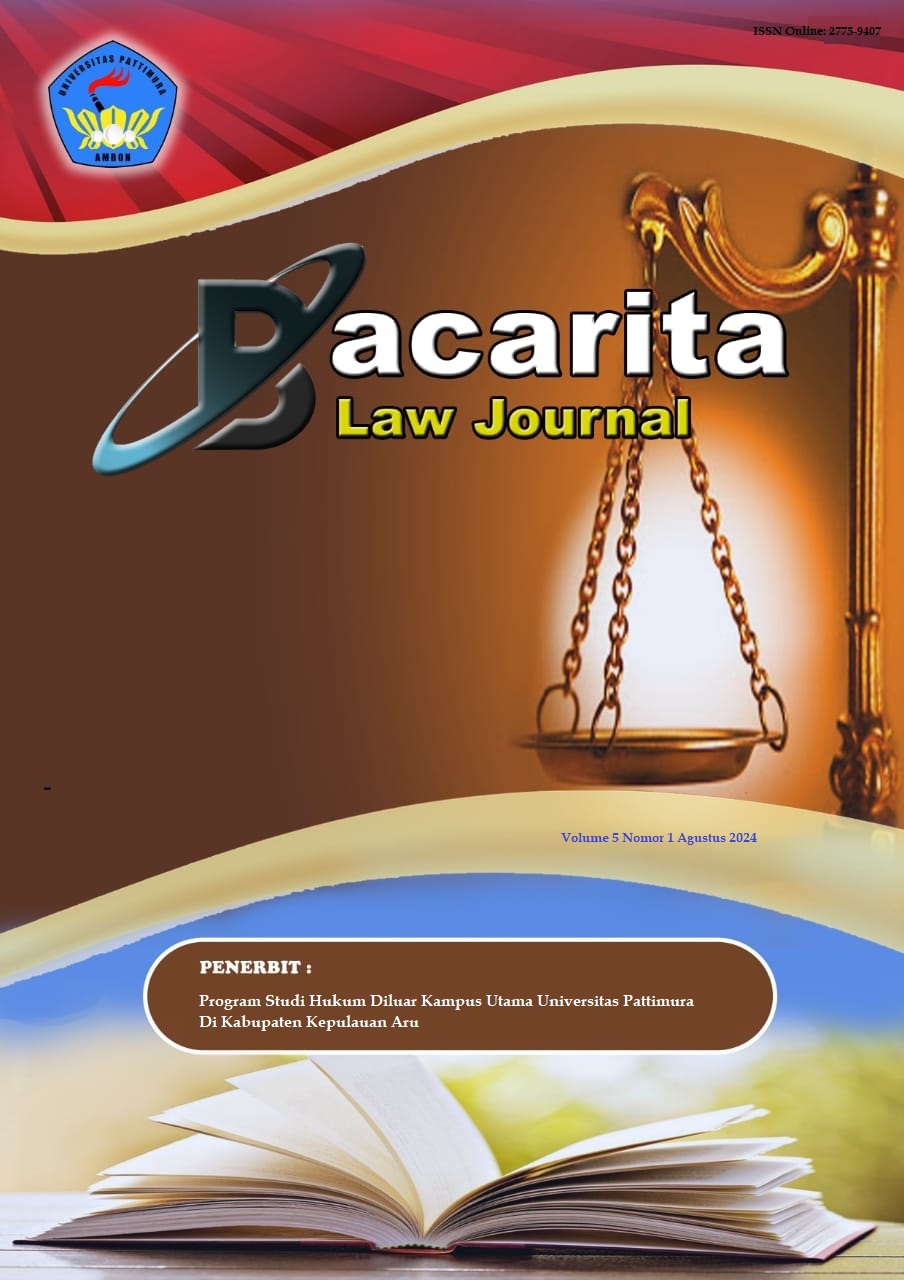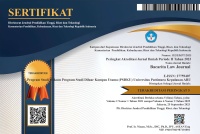Legal Protection for Consumers Related to Skincare Products and Bodycare Overclaim
Abstract
The rise of misleading marketing practices in the midst of the rapid cosmetics industry, which results in losses for consumers, both material and immaterial. This study aims to identify forms of legal protection for consumers who are victims of overclaims and evaluate the role of the Food and Drug Supervisory Agency in handling these cases, using an empirical legal research method, primary data is obtained through questionnaires from consumers, while secondary data is obtained from literature studies, then analyzed qualitatively-descriptively. The results of the study show that business actors are prohibited from advertising or promoting goods incorrectly or misleadingly, including through overclaim. Violation of this article violates the consumer's right to honest and correct information. However, overclaim practices still often occur due to low compliance of business actors and lack of effective supervision and enforcement. Food and Drug Supervisory Agencies have a crucial role in pre-market to post-market oversight and enforcement, but face challenges in broad market coverage and digital dynamics. It is hoped that this thesis can provide a comprehensive understanding of rights and obligations in the context of overclaim, increase consumer awareness, encourage compliance of business actors, and become an input for the government and the Food and Drug Supervisory Agency in formulating more protective policies and effective law enforcement mechanisms to create a responsible cosmetics market.
Downloads
References
Akbar, Aqsa Qazwani Haqkul. “Perlindungan Hukum Bagi Konsumen Terhadap Peredaran Kosmetik Yang Berbahaya (Studi Kasus BPOM Di Mataram)” 3 (2020): 216–24.
BPOM. “Peraturan Badan Pengawas Obat Dan Makanan Nomor 3 Tahun 2022 Tentang Persyaratan Teknis Klaim Kosmetika.” Badan Pengawas Obat Dan Makanan Republik Indonesia, 2022, 1–33.
Hilmi, Rafiqi Zul, Ratih Hurriyati, and Lisnawati. “Peran Balai Besar Pengawas Obat Dan Makanan (BBPOM) Dalam Pengawasan Kosmetik Tanpa Izin Edar Di Kota Makassar” 3, no. 2 (2018): 91–102.
Kuncoro, Adinda Ayu Puspita. “Perlindungan Hukum Konsumen Terhadap Penggunaan Kata Overclaimed Pada Iklan Produk Skincare,” 2024.
Marlina, Heni, Desni Raspita, M Novrianto, and Chahaya Dewi Bidari. “Perlindungan Hukum Bagi Konsumen Atas Overclaim Produk Skincare Di Platform E-Commerce Legal Protection for Consumers Against Overclaim of Skincare Products on E-Commerce Platforms,” n.d.
Nabilah, Syofiya Sutia. “Perlindungan Hukum Terhadap Konsumen Atas Perbuatan Overclaimed Dalam Promosi Oleh Influencer Pada Suatu Produk Skincare.” Αγαη 15, no. 1 (2024): 37–48.
“Pasar-Kosmetik-Indonesia-Melesat-48-Persen-Peluang-Ikm-Berinovasi @ Indonesia.Go.Id,” n.d.
Salsabila, Monarisa. “Perlindungan Konsumen Terhadap Produk Kosmetik Yang Dijual Secara Online Di Kota Banda Aceh.” Jurnal Fakultas Hukum Universitas Syiah Kuala 7, no. 1 (2015): 1–13.
Sari, Bunga Permata, Sulatri, Kristina. “Perlindungan Hukum Terhadap Konsumen Terkait Overclaim Pelaku Usaha Dalam Label Obat Ditinjau Dari Pasal 8 Ayat (1) Huruf D Undang-Undang Nomor 8 Tahun 1999 Tentang Perlindungan Konsumen.” Jurnal Ilmiah Fakultas Hukum, no. April (2022): 89–100.
Widiarta, AA Putri Ganitri Windrahayu. “Perlindungan Konsumen Terhadap Produk Skincare Tanpa Label Bahasa Indonesia.” Jurnal Kertha Desa 8, no. 7 (2020): 1–11.
Copyright (c) 2025 Ribsi Esa Vylonia Putri

This work is licensed under a Creative Commons Attribution-NonCommercial 4.0 International License.
Authors who publish their manuscripts in this Journal agree to the following conditions:
- The copyright in each article belongs to the author, as well as the right to patent.
- Authors are able to enter into separate, additional contractual arrangements for the non-exclusive distribution of the journal's published version of the work (e.g., post it to an institutional repository or publish it in a book), with an acknowledgment of its initial publication in this journal.
- Authors are permitted and encouraged to post their work online (e.g., in institutional repositories or on their website) prior to and during the submission process, as it can lead to productive exchanges, as well as earlier and greater citation of published work.
- Authors have the right to self-archiving of the article (Author Self-Archiving Policy)















